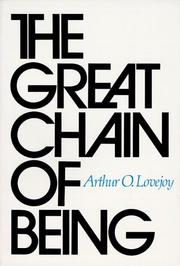| Listing 1 - 10 of 41 | << page >> |
Sort by
|
Book
ISBN: 1421432463 142143248X 1421432471 Year: 2019 Publisher: Johns Hopkins University Press
Abstract | Keywords | Export | Availability | Bookmark
 Loading...
Loading...Choose an application
- Reference Manager
- EndNote
- RefWorks (Direct export to RefWorks)
Originally published in 1963. The essays in this volume are critical and, with one exception, directed against the philosophic movement of pragmatism. "The Thirteen Pragmatisms" is an exercise in logical analysis and is a challenge to a group of philosophers who have taken on a collective name to show how their apparent diversities are to be reconciled. Few philosophers would call themselves orthodox followers of this train of thought, so these essays can be studied without a sense of personal injury that deadens the critical faculty and obscures insight. In The Thirteen Pragmatisms and Other Essays, logical technique is on display: the author's keenness in spotting double meanings and his ability to rephrase them in univalent form. This collection of essays should afford students of philosophy a set of cases in which they need not take sides but which give them an analytical method they can practice themselves on contemporary issues. The fact that these essays are on the whole critical gives them a heuristic value that dogmatic or expository essays would not have.
Pragmatisme. --- Pragmatism. --- Idealism --- Knowledge, Theory of --- Philosophy --- Philosophy, Modern --- Positivism --- Realism --- Utilitarianism --- Experience --- Reality --- Truth --- Pragmatism
Book
ISBN: 1421432404 1421432420 1421432412 Year: 2019 Publisher: Johns Hopkins University Press
Abstract | Keywords | Export | Availability | Bookmark
 Loading...
Loading...Choose an application
- Reference Manager
- EndNote
- RefWorks (Direct export to RefWorks)
Originally published in 1961. The Reason, the Understanding, and Time is concerned with the history of the conceptions of reason, ego, time, and other related concepts that enjoyed a great vogue and influence in German philosophy in the last decades of the eighteenth century and the early decades of the nineteenth century. Kant's influence on and relevance to the development of later German epistemology is traced, as is the impact of those ideas on the Transcendentalist movements in England and America as represented by Coleridge, Carlyle, and Emerson. The significance of Jacobi's philosophy, hitherto not fully appreciated by historians, is demonstrated as well as the contribution of the young Schelling. By examining Bergson's letters, Lovejoy throws new light on Bergson's concept of time. Lovejoy's philosophical interpretation is a model of penetrating insight and helpful criticism.
Philosophy. --- Mental philosophy --- Humanities --- History of philosophy, philosophical traditions
Book
ISBN: 0801803926 Year: 1970 Publisher: Baltimore, Md
Abstract | Keywords | Export | Availability | Bookmark
 Loading...
Loading...Choose an application
- Reference Manager
- EndNote
- RefWorks (Direct export to RefWorks)
Philosophy and psychology of culture --- Comparative literature --- History

ISBN: 0674040333 9780674040335 0674361539 9780674361539 Year: 2021 Publisher: Cambridge, MA
Abstract | Keywords | Export | Availability | Bookmark
 Loading...
Loading...Choose an application
- Reference Manager
- EndNote
- RefWorks (Direct export to RefWorks)
Paper mosaics, silk screen prints, fold-outs, silhouettes, and other types of cards to make yourself.
Continuity. --- Chain of being (Philosophy) --- Great chain of being (Philosophy) --- Continuity --- Cosmology --- Creation --- Ontology --- Philosophy --- Continuum --- Mathematics --- Indivisibles (Philosophy) --- Idea (Philosophy) --- Ontology. --- History. --- Chain of being (Philosophy).
Book
ISBN: 1421432439 1421432455 1421432447 Year: 2019 Publisher: Johns Hopkins University Press
Abstract | Keywords | Export | Availability | Bookmark
 Loading...
Loading...Choose an application
- Reference Manager
- EndNote
- RefWorks (Direct export to RefWorks)
Originally published in 1961. Arthur O. Lovejoy, beginning with his book The Great Chain of Being, helped usher in the discipline of the History of Ideas in America. In Reflections on Human Nature, Lovejoy devotes particular attention to influential figures such as Hobbes, Locke, Bishop Butler, and Mandeville, tracing developments and changes in the concept of human nature through the seventeenth and eighteenth centuries. He also discusses the theory of human nature held by the founders of the American Constitution, giving special attention to James Madison and the "Federalist Papers."
Philosophy. --- Mental philosophy --- Humanities --- Social & cultural history
Book
Year: 1930 Publisher: New York (N.Y.) : Norton,
Abstract | Keywords | Export | Availability | Bookmark
 Loading...
Loading...Choose an application
- Reference Manager
- EndNote
- RefWorks (Direct export to RefWorks)
Book
Year: 1966 Publisher: Cambridge (Mass.) : Harvard university press,
Abstract | Keywords | Export | Availability | Bookmark
 Loading...
Loading...Choose an application
- Reference Manager
- EndNote
- RefWorks (Direct export to RefWorks)
Book
Year: 1960 Publisher: New York (N.Y.) : Capricorn books,
Abstract | Keywords | Export | Availability | Bookmark
 Loading...
Loading...Choose an application
- Reference Manager
- EndNote
- RefWorks (Direct export to RefWorks)
Book
Year: 1948 Publisher: Baltimore (Md.) : Johns Hopkins press,
Abstract | Keywords | Export | Availability | Bookmark
 Loading...
Loading...Choose an application
- Reference Manager
- EndNote
- RefWorks (Direct export to RefWorks)
Book
Year: 1961 Publisher: Baltimore (Md.) : Johns Hopkins press,
Abstract | Keywords | Export | Availability | Bookmark
 Loading...
Loading...Choose an application
- Reference Manager
- EndNote
- RefWorks (Direct export to RefWorks)
| Listing 1 - 10 of 41 | << page >> |
Sort by
|

 Search
Search Feedback
Feedback About UniCat
About UniCat  Help
Help News
News